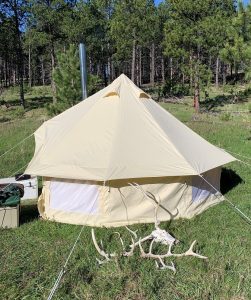It’s a great idea to be prepared for a hunting camping trip! Based on my research here is a comprehensive list of camping essentials, broken down into categories to help you stay organized.

HUNTING AND CAMPING ESSENTIALS CHECKLIST
1.Shelter and Sleeping
2. Camp Kitchen
3. Clothing
4. Personal and Safety Items